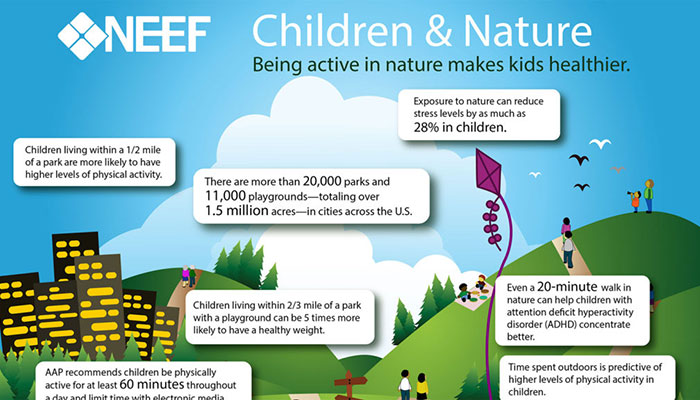Read the detailed description of Quest's Summer Camp information!
Impact of Summer Camp on Developmental Outcomes
THE POWER OF CAMP!
Read Our Latest Announcement!
- Fun, engaging programming that is innovative and therapeutic through our Quest Model
- Social thinking groups
- Mindfulness sections
- experiential learning through games, sports, and therapy activities
- Activities on resiliency and problem solving
- Resources to Quest families through our interactive app
- New Teen Leadership Academy for teens and young adults (mostly Quest graduates who we want to provide a leadership and further growth experience for)
- Based on parent feedback–we will be providing more support for the home environment through our new interactive app and a program designed for our parents
Sincerely,
Jodie Knott, Ph.D.
Director and Licensed Psychologist
Quest Therapeutic Camps of Southern California
Summer camps are an exciting and influential place for children to learn new social skills and to stay active through what can be considered the lazy summer months. Being active in the summer is one of the best ways to prevent summer learning loss. As a camp director it is fantastic to have research that supports the types of activities happening in a variety of camps across the country that goes being speaking of the “magic of camp” to instead focus on various aspects of camps that have been found to be helpful and positive for children.
In a new study by the American Journal of Preventative Medicine, it has been found that children who attend summer day camps are getting more than the recommended amount of physical activity each day. Although this seems obvious to some, we now have this study to prove it. Along with schools, summer day camps have been found to be the largest setting to encourage children to be physically active, with more than 70% of boys and girls getting more than the recommended amount of 60 minutes per day. The author of this study also mentioned that it is important to call on our public health practitioners and encourage them to help make summer day camps accessible for children. [1]Our children’s health and wellbeing’s can be strengthened by exercise and physical activity in outdoor settings. Some of the positive outcomes of physical activity consist of reduced stress, improves mood, increases metabolic rate, and boosts brain function. Some examples of physical activities for your child are to try are running, swimming, bicycling, tennis, and taking walks. Many children can get this kind of physical activity by going to the local park or simply spending time outdoors.
Spending time in nature assists in healthy weight and reduces stress levels. Children with ADHD have also been found to have increased concentration after being in nature for 20 minutes. While outside, children are likely to improve social skills by inventing games and improving creativity in outdoor setting and are more likely to grow up and continue to play outside when adults. When the recommended physical activity is not being met, children are more likely to experience lack of sleep, poor eating habits and experience stress. [2]To help prevent this, here are a few tips:
1) One 60-minute nap can help improve alertness for up to 10 hours
2) Poor nutrition impairs a child’s mental function, causes lack of energy, and causes sickness – so make a balanced meal for your child
3) Drinking water relieves fatigue, improves mood, treats headaches/migraines, helps digestion, and constipation [3]The American Camp Association believes that learning can take place year-round when children are supported by challenging, stimulating, and positive experiences (Bridglall, 2005). The rest of this newsletter presents a compilation of some of the research that supports camp’s place in the positive development of children for a Public Policy Update from the American Camp Association. [1]Engaging children in positive out-of-school activities has been found to predict academic success, such as:
1. Higher test scores
2. Lower absenteeism
3. Lower dropout rates
4. Higher homework completion rates
5. And higher grades
(Eccles & Barber, 1999; Gambone, Klem, & Connell, 2002).
When a child is involved in extracurricular activities they are more likely to adjust academically and be a positive peer (Fredricks & Eccles, 2006). Programs that enhance a child’s personal social skills demonstrate significant increases in a child’s self-perceptions and bonding to school, positive social behaviors, school grades and levels of academic achievement, and significant reductions in problem behaviors (Durlak, Weissberg, & Pachan, 2010).
High-quality, structured, out-of-school activities are environments that have the potential to:
1) Support and promote youth development because they offer youth safe environments
2) Prevent youth from engaging in delinquent activities
3) Teach youth general and specific skills, beliefs, and behaviors
4) And provide opportunities for youth to develop relationships with peers and mentors (Gambone, Klem, & Connell, 2002).
Participation in structured, constructive activities focused on positive social behaviors (rather than simply hanging out with friends or watching television, etc.) has been shown to significantly increase positive developmental outcomes (Bartko & Eccles, 2003).
In addition, children need to integrate academic learning into other contexts, such as the outdoors, to “test” knowledge learned in classrooms. Outside of school, youth must search out resources and become proactive, active agents in their own learning, and this promotes many individual benefits such as initiative (Larson, Hansen, & Moneta, 2006), self determination (Dawes & Larson, 2011), and confidence (Larson, Walker, & Pearce, 2005). Participation in out of school educational programs provides exposure to new activities and people, as well as to opportunities for self expression and identity development.
Camps can be a safe place from pressures in school because of their heavy focus on social and emotional objectives, much lower youth-adult ratios, higher levels of supervision and management, and greater instructional intent and skill (Zmudy, CurtnerSmith, & Steffen, 2009).
- Summer camps can motivate students to plan and prepare to enter postsecondary education upon graduation from high school (Beer, Le Blanc, & Miller, 2008).
- Camp has positively influenced the youth development outcomes of adventure/exploration, independence, making friends, positive identity, and peer relationships (Henderson, Whitaker, Bialeschki, Scanlin, & Thurber, 2007).
- Camp has positive implications for identity development; social, physical, and thinking skills; and positive values and spirituality (Thurber, Scanlin, Scheuler, & Henderson, 2007).
- Camp participation can improve self-esteem and self-efficacy (Readdick & Schaller, 2005), social competencies (Hanes, Rife, & Laguna, 2005), and skill building (Carter, Lane, Pierson, & Glaeser, 2006; Garst & Bruce, 2003).
At most camps, children are physically active and in the outdoors for much of the time. Stephen Kellert, a strong advocate for and researcher of children and nature, has found that direct experience in nature is important to children’s intellectual, emotional, social, spiritual, and physical development (2005). Time spent in the outdoors can mitigate some health threats such as sedentary behavior and attention deficit disorder (Moore & Cooper Marcus, 2008). Research also has shown that additional time spent in physical activity has been linked to small increases in students’ grade point averages and more efficient classroom learning, as well as positive associations with children’s physical fitness, concentration, memory, behavior, and school satisfaction (Trudeau & Shephard, 2008).
Children benefit from appropriate risk taking during outdoor play because social and environmental issues (e.g., traffic, lack of space, other time demands, and parental fears) are lessened in structured outdoor experiences where they can develop and refine their motor skills and gain confidence in being physically active (Little & Wyver, 2008). Taylor and Kuo examined how nature can soothe ADD/ADHD symptoms and found that children concentrated better after walking in a park setting, as compared to either a downtown or residential setting, and that differences in concentration levels narrowed between children with and without ADHD after walking in parks (2009). These researchers have also found that access to nature nurtures self-discipline, peace, and self-control (Kuo & Taylor, 2005; Taylor, Kuo, Spencer, & Blades, 2006; Taylor, Kuo, & Sullivan, 2002).
The ability to have self control, concentration, and other positive qualities can carry over to academic settings, leading to academic achievement. Bell and Carrillo (2007) suggest that the most effective summer programs give strong attention to the characteristics of accelerating learning, youth development, proactive approaches to learning, leadership, advanced planning, staff development, strategic partnerships, evaluation and commitment to program improvement, and sustainability and cost-effectiveness.
[1] Children in Nature infographic. www.neefusa.org https://www.neefusa.org/sites/
[2-3] Student Health and Wellbeing Infographic. Wellbeing Support. https://wellbeing.support/
[4] Year Round Education: Public Policy Position. American Camp Association, June 2011. http://www.acacamps.org/sites/
UPCOMING PROGRAMMING
Summer Programming
Quest’s intensive summer program offers 7 weeks of programming (6 weeks of day camp and 1 week of residential). The summer program includes individualized behavior plans, group therapy, occupational therapy, a social thinking curriculum, mindfulness activities, yoga, soccer, games in the park, and field trips (beach, boomers, rock climbing, ropes course, bowling, etc.) to create a fun and engaging, therapeutic camp experience for children.
Weekly parent meetings are also included. The summer program has been found across multiple studies to significantly reduce hyperactivity, impulsivity, aggression, and inattention, while improving peer relations, family relations, athletic competency, behavioral control and self-esteem. Quest has also been found to improve social awareness, social cognition, social communication, and social problems.
Summer Camp Dates are:
June 26 through August 10th
Early Bird Registration for $200 off ends April 15th! Sign Up Now!

